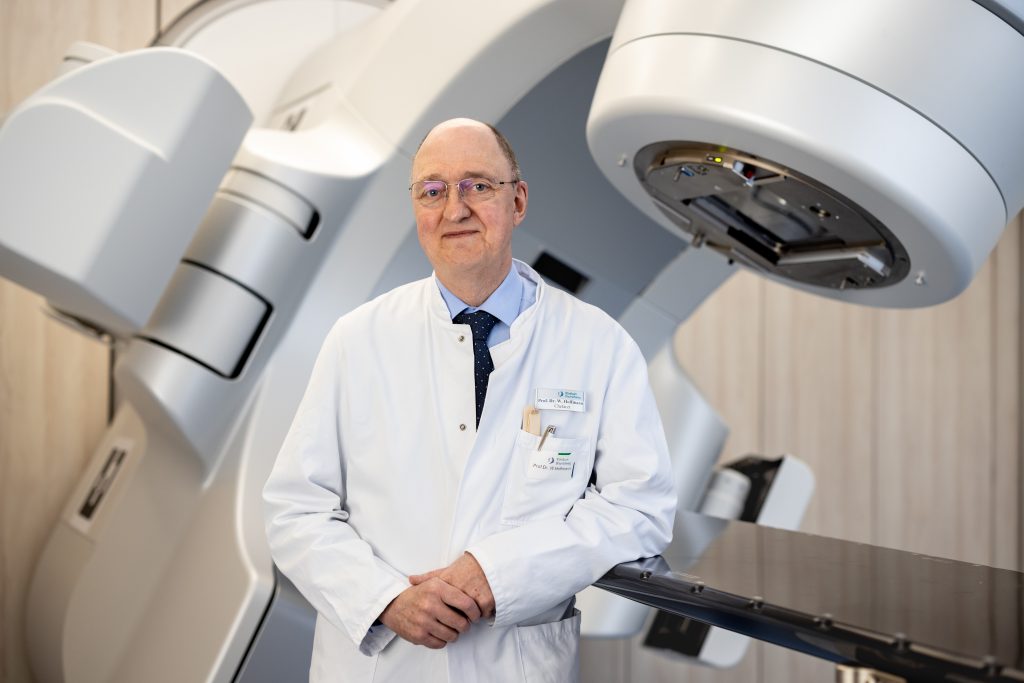Episode 15: The Pill Against Cancer
Startseite » Episode 15: The Pill Against Cancer
Episode 15: The Pill Against Cancer
The discovery of a “pill against cancer” is a long-awaited dream of humanity. But is that realistic? In the latest episode of our podcast, Prof. Dr. Wolfgang Hofmann provides clarification. As Head Physician for Radiotherapy and Radiation Oncology at the Städtisches Klinikum Braunschweig and spokesperson for the Cancer Center, he has extensive expertise. He provides information on the current care and therapy situation in Germany, explains how clinical studies are conducted, and discusses immunotherapy in more detail, a future trend in cancer research. Find out in this article what this promising approach is all about.

Research in Braunschweig
Even if a healthy lifestyle minimizes risks, Prof. Hoffmann clarifies in his introduction that cancer is a fateful disease. Of course, there are preventive measures – little alcohol, a Mediterranean diet, and not smoking. But what if you do get sick?
In Braunschweig, the treatment methods are organized in such a way that every person affected can be directly referred to specialists to select a suitable form of therapy. Participation in clinical studies is also a proven method. “A clinical study has nothing to do with being a guinea pig, but is a quality-assured framework for patients to be offered options.” The patient always receives the high therapy standard plus a new option for which there are either obvious theoretical considerations for a benefit or retrospective data from earlier clinical studies where it was tested on a few patients and an effect was seen.” The focus is on improving the quality of life and chances of recovery for those affected.
Can AI Cure Cancer?
Early detection is crucial. This is working better and better, especially through the use of so-called artificial intelligence, Prof. Hoffmann summarizes. In cancer therapy, for example, they are used in addition to medical personnel in the search for potential cancer foci. The advantage: The AI is trained in such a way that it is more likely to recognize a focus as cancer that is not, than to overlook cancer foci. In connection with human control, it is then very unlikely that a possible tumor will not be recognized or diagnosed early enough. So AI can cure cancer, but only with a human eye.
The podcast “Forsch! – Science in Conversation” is a cooperation between the ForschungRegion Braunschweig and the Braunschweiger Zeitung. The moderators from ForschungRegion and Braunschweiger Zeitung talk to actors from the region about their research, their person – and about current social, political and ethical questions and debates. Now directly Listen to it here or stream it on Spotify, Apple Podcasts or Deezer.
